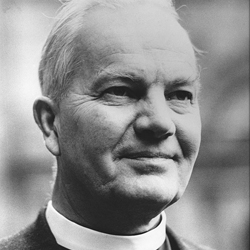Tragedy, Trouble and the Case Against Evil
By Neil Earle
 Health care workers are putting themselves at risk as they care for those who are infected with the coronavirus.
Health care workers are putting themselves at risk as they care for those who are infected with the coronavirus. Whether as Professor Moriarity in The Adventures of Sherlock Holmes or that agent of chaos, known as the Joker in a recent Hollywood movie, evil often fascinates and is too omnipresent to ignore while we stumble to make sense of it.
But, if evil exists, can Good be far behind?
Even as caregivers performed their usual feats of mercy and heroism in the hospitals and shelters across the Western world to deal with COVID 19, my local TV station kept screening “The Dark Knight Rises” movie. This was the Batman remake that became the stage set for James Holmes, who shot 12 and injured 70 in Aurora, Colorado in July, 2012.
Much worse has happened since. No matter how much tragedy we see we still ultimately wrestle wth the “Why” of it all. The actor Michael Caine approaches the bleak core in another Batman movie when he tells Bruce Wayne/Batman (who is trying to figure out the Joker’s motives) that “Some men just want to watch the world burn.”
Defining Evil?
Yes, popular culture sometimes stirs the depths. Why are some people like that? Why does tragedy and senseless death parade so often across our TV screens?
Across the centuries Christian thinkers have offered some provocative explanations. In the 400s St. Augustine’s shrewd affirmation was borrowed from Plato – evil is but the corruption of good. St. Augustine reminds us that evil is a knotty theological problem. And 2 Thessalonians 2, speaking of a very evil villain to appear (or has already appeared) at some unspecified time, speaks of “the mystery of iniquity.”
Evil’s origins are obscure even in Stephen King novels who has made a career from the phenomenon. Flagg, for example, the Satan-like character in The Stand simply shows up. He is foiled but there are hints that given the right set of circumstances he’ll be back.
There certainly is a mystery about tornadoes or earthquakes even more than viruses whose cause can be more precisely located. Augustine’s definition of evil as a spore, a cancer, a mould preying on something healthy as its host element takes us a long way. In the Bible evil is personalized in the Biblical form of the Devil who (some think) turned envious at God’s purposes for his good creation. “The only cause of evil,” wrote Augustine, “is the falling away from the unchangeable good…it is puffed up with a foolish joy” (Enchiridion, pages 3031).
Pride the Root
Satan is in fact scored for that very sin of pride in 1 Timothy 2:6.
Pride as “foolish joy.” Hmm. “For what is that which we call evil but the absence of good?” Augustine continued. This makes me think of another movie series – the Star Wars series featuring Anakim Skywalker a.k.a. Darth Vader. Good gone bad. Says Augustine, “and even one which was corruptible must be to some extent a good, for only by corrupting what was good in it could corruption do its harm.” For Augustine, God, being unchangeable, is the highest Good from which evil is a deflection, a defect. “Evil cannot exist without good,” he asserts, “but good can exist without evil.” Hmm, again.
Evil Preying on Good
Christian thinkers have gone even beyond Augustine. The irrationality and dedication to chaos which the Joker exemplifies points to “one supreme degree of Reality beyond us.” This is a quote from C.F. D’Arcy in his essay “Atonement and the Problem of Evil” in The Atonement in History and in Life. It’s a weighty title indeed but one indicative of how Christians have wrestled with this problem of besetting evil all across Church history.
In Dying, We Live Kenneth Grayston of the University of Bristol offers this rephrasing of Augustine: “Sin has no independent existence; apart from God’s holy law, Sin is lifeless. When, however, God utters a prohibition, Sin seizes upon it as a base of operations.” Grayston goes on to quote the Jewish writer Philo who summarized evil in terms eerily reminiscient of Michael Caine’s: “Like a flame in the forest, it spreads abroad and consumes and destroys everything.”
A virus at its peak certainly fits that description. Grayston, D’Arcy, Augustine and Philo are all echoing St. Paul’s meditation on the strange, deadly effects of personal evil that begins to infect us in Romans 7:7-8, “Indeed I would not have known what sin was except through the law…But sin, seizing the opportunity afforded by the commandment, produced in me every kind of covetous desire.”
 Thomas Torrance
Thomas Torrance“Contingent Evil”
Personal and group evil seem to have lives of their own but of course they don’t. There seems to be powerful and dangerous dynamics built into this universe. Jesus is born in Bethlehem and Herod kills baby boys in a fiendish counterstroke. Jesus preaching the good news brings a built-in judgment on his hateful critics. This is almost a constant. The twofold nature of things. Jesus dies on a cross between two victims and one beside him repents – but the other apparently does not.
What is going on? Here we get help from the Scottish theologian Thomas Torrance (1913-2007) who wrote eloquently and passionately about evil, perhaps all the more after seeing soldiers die in his arms as a chaplain in World War Two.
“Mankind is engulfed in a vast evil quite beyond it…an abyss of fearful darkness too deep for men and women to understand and certainly too deep for them ever to get out of it.” Torrance is the apostle of Contingency, the theological claim that the universe, the world itself is subjected to vanity as Paul wrote (Romans 8:20, NAV). We see a good creation but it shows signs of either being unfinished or put together with built-in forces so dynamic as to allow for both progress or regression, both cheap nuclear power and the death of Hiroshima.
Torrance noticed that Einstein and Bohr and others had discovered a strange quantum universe that was predictable in some ways (as Newton confirmed) but yet teemed with spontaneity and dynamism which defied neat complete mathematical confirmation, “noises in the system.” Contingency.
In Divine and Contingent Order Torrance argued that the contingency of the universe (stars exploding and others being born, meteors streaking across the night sky) this points to the cosmos as ultimately mysterious and baffling. As he concludes, “this is not because it is deficient in rationality (we can still guide spacecraft to Mercury) but because the extent and nature of its rationality exceed our capacity to achieve complete mastery over it” (page 40).
The Cross, after all
These are powerful thoughts and are only now being taken up by many of today’s thinkers. Torrance the pastor of course sets forth the encouraging truth of the Christian message of the Son of God, Jesus Christ, coming to rescue us from the consequences of living in a contingent universe, a setting where good and evil coexist and where evil often seems to have the upper hand. As he phrases it in a long sentence:
“This is what God does, he comes himself in order to deliver us from subjection to destruction and death. It is this that lies behind not only the cross and the descent of the Savior into our bottomless pit of guilt and death, but behind every act of healing and mercy in which Jesus sought to release distressed humanity from its subjection to evil and vanity, to release it from being a prisoner of chaos and disorder and disintegration…” The purpose in all this is to restore it to the truth of God’s creation in which he affirms as Good what he has made and assumes it (humans most notably) into communion with himself to share in his own life and glory” (Incarnation, page 242).
This is hefty theologizing but it can speak so well to our desperate need, our bewilderment and our suffering when evil strikes at a time like this. “Do not lose your sense of the Future,” counsels James Smith of Calvin College. All Christian hope and expectation looks to the future when the circles will be squared, when God himself comes down to explain to us what happened to us and why, when we shall know as we are known (1 Corinthians 13:12).
The Bible promises not only deliverance from this mystery of evil but also an answer to our own struggles with it. To those who call out for God’s help in times when evil seems rampant, whatever its cause, there come the reassuring words of the One strong enough to take Evil into himself – who became Sin for us – and turned it into a blessing in ways we cannot now see. To us he says, “Come to me all you who are weary and burdened and I will give you rest” (Matthew 11:29).